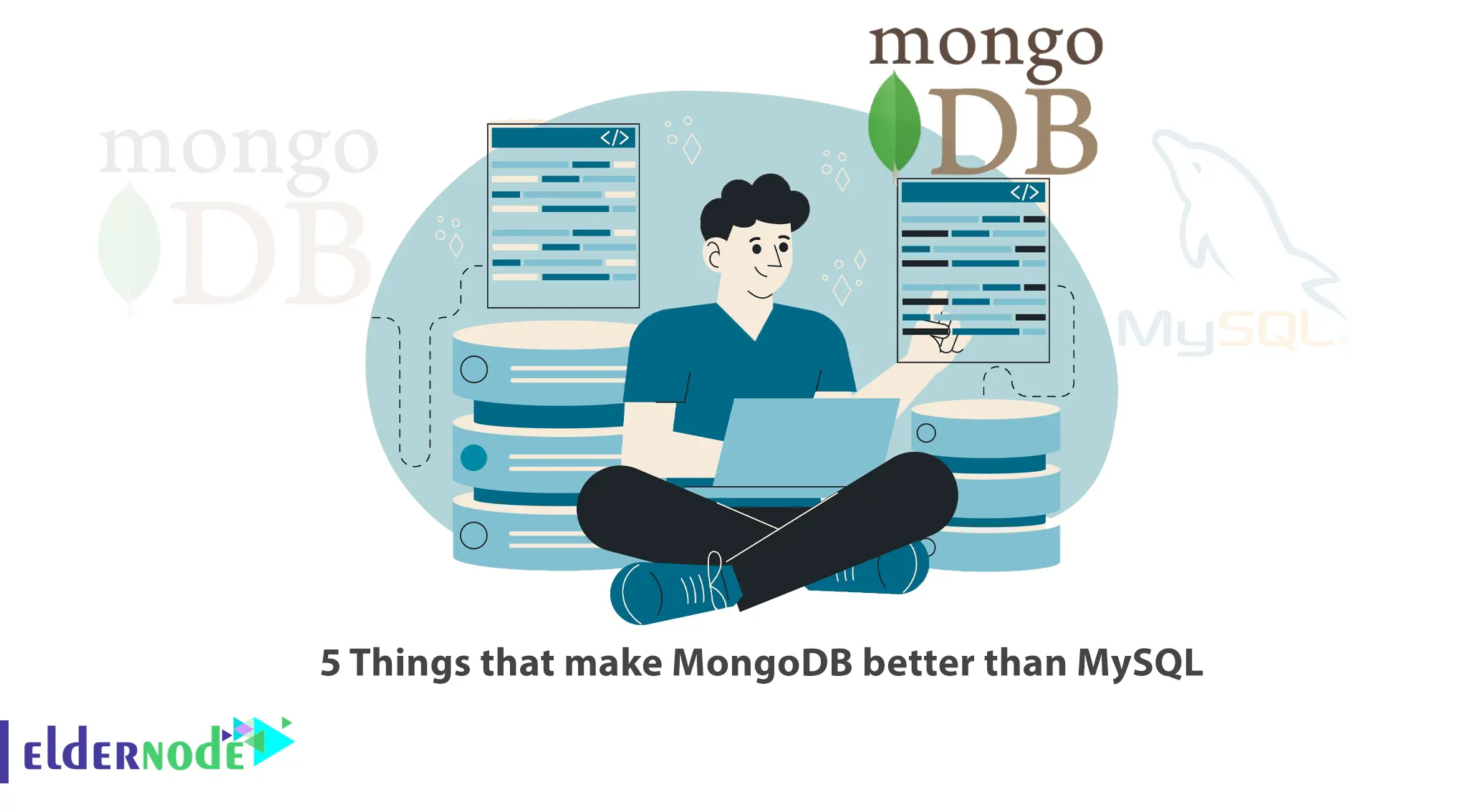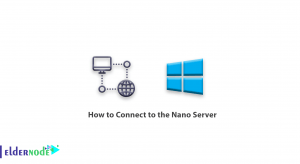
One of the most important parts of implementing an application or website is choosing a database. There are many databases that programmers use according to system needs and preferences. In this article, we are going to explain 5 things that make MongoDB better than MySQL. If you want to VPS server, you can visit the plans offered on the Eldernode website.
Table of Contents
Why MongoDB better than MySQL?
Introduction to MySQL
MySQL is one of the most popular relational database management systems that is open-source and is using in the development of many web applications. RDBMS helps you in:
– Implement your relational database with the necessary rows and columns and the corresponding index.
– Combine the rows of different tables.
– Access and collect database data through SQL commands.
– MySQL is powerful and fast and is using in large projects to work with huge data sets. This system is suitable for any operating system and supports many languages such as PHP and Java.
Introduction to MongoDB
MongoDB is one of the most famous NoSQL databases, which has a flexible structure and is mostly used in projects with a large amount of data. This database is an open-source and free platform and works with the Document-Oriented data model and can be used on Windows, Macintosh and Linux.
Data is stored in corresponding documents in the BSON format, which is similar to JSON but supports more data. These values are using with two primary keys (Primary Key) and secondary key (Secondary Key).
MongoDB can be used at any level of applications. But for applications related to Big Data and Hadoop, using MongoDB is recommended. Currently, MongoDB is one of the databases that is fully used in the process of developing server-side applications written with NodeJS.
5 Reasons that make MongoDB better than MySQL
In the continuation of this article, we will explain 5 things that make MongoDB better than MySQL.
1) Integrated features
There are facilities that you may need in the development process. For example, data analysis and visualization, text search, graph processing, etc. Now, if you use RDBMS systems, one of the main problems is that you have to use different tools to do this. These tools must also be individually integrated with your database system. But MongoDB brings these features to you internally and gives you the ability to integrate all of these together in a very short time.
2) Reduce TCO
TCO means total cost to the project owner. Usually, using MongoDB in projects costs less than other database systems. Apart from that, since working with MongoDB will be faster and relatively easier, you will need fewer developers to manage the system.
3) Data distribution platform
By considering data centers that operate in a geographically distributed manner, MongoDB offers a new level of scalability and availability. In this case, your application will not suffer and the scalability of your database system will also become more flexible.
4) Support all the advantages of NOSQL languages
NOSQL or non-relational nature of this database has made MongoDB enjoy all the benefits of non-relational databases. So it can be said that this database has these three features implicitly:
Scalable: in such a way that no drop in performance will be felt by increasing sizes and huge changes in the number of data.
High efficiency: This database is highly efficient and can be used for sensitive and large cases, and it will have the best efficiency with the least facilities.
Flexible: This means that you have the possibility to use this database for many things and not just for a certain type of data (eg big data).
5) Easy user interface and quick setup
Fast and simple installation, setup and implementation is another advantage of MongoDB. It is faster and easier to set up than RDBMS and offers modern JavaScript frameworks. This feature allows users to select NoSQL structures with confidence. It also provides faster learning and training opportunities than SQL databases.
Conclusion
In this article, we tried to explain 5 things that make MongoDB better than MySQL. Each of these databases has its own characteristics and uses. On the other hand, the flexible structure of MongoDB will allow you to store all types of data that may be required for project implementation. If you have experience working with relational databases such as MySQL or MongoDB, share your opinion with us.




